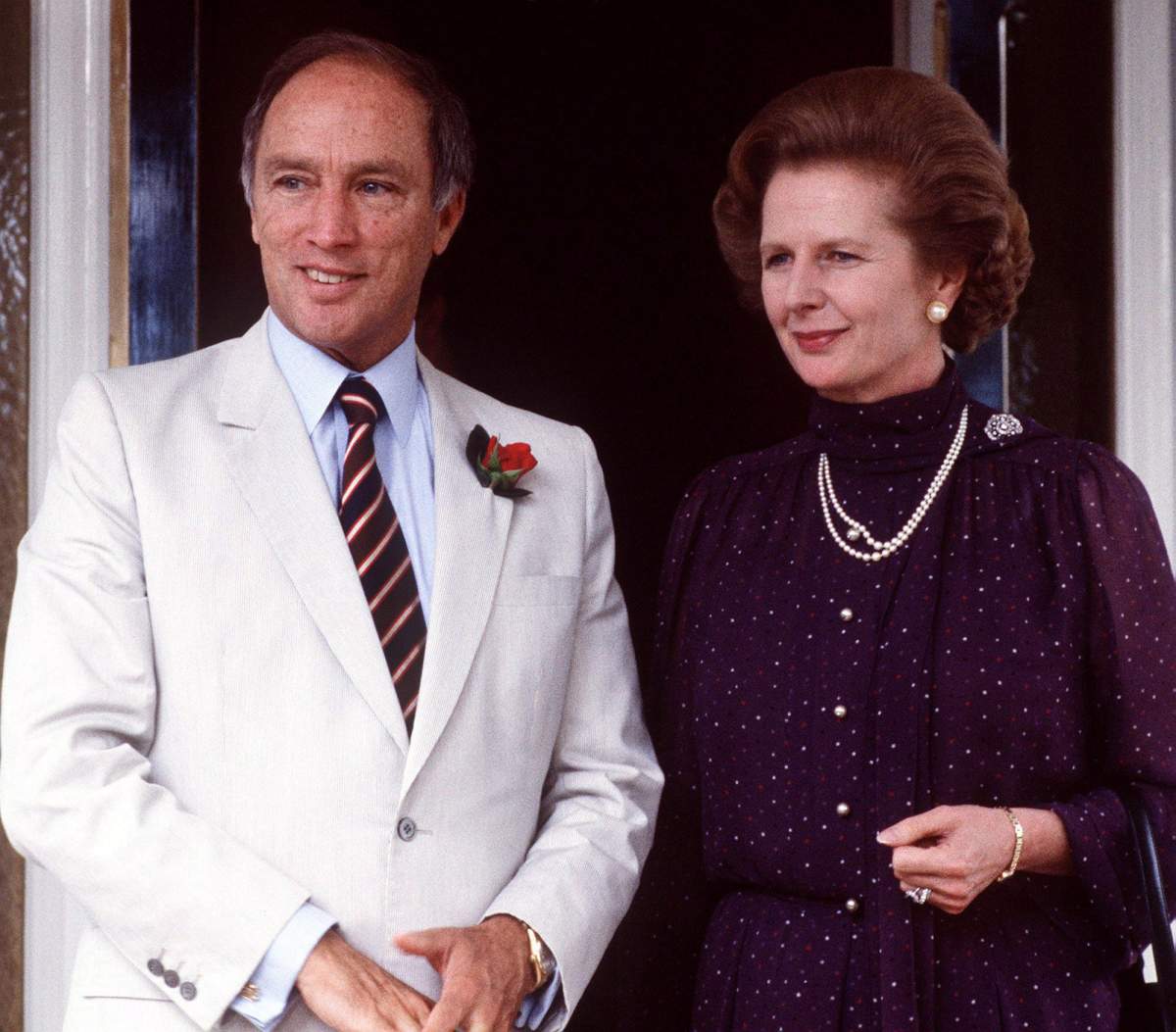She helped to inspire conservatives in Canada for a future generation who didn’t yet know how to define themselves.

And while Margaret Thatcher’s influence is most acutely felt among her fiscally-prudent, free-market Canadian brethren, the former British prime minister also played a pivotal role in the patriation of this country’s Constitution – a testament to the respect she earned from politicians of all stripes.
Thatcher, who died Monday of a stroke at age 87, was remembered in Canada as a gracious but tough leader who helped pave the way for modern Conservatives, including Prime Minister Stephen Harper.
“She was a real inspiration,” said Preston Manning, former leader of the right-leaning Reform Party.
“When we started out here, it wasn’t the conventional wisdom that governments should live within their means. She certainly changed that.”
Thatcher’s brand of fiscal conservatism and as an advocate for trade liberalization served as an example to small-c conservatives in Canada who, during the 1980’s, were beginning to form similar notions of smaller government, said Manning.
“It was helpful to have somebody on the international stage that was saying the same thing,” said Manning, president and CEO at the conservative Manning Centre for Building Democracy.
“Because you could say, this isn’t just some eccentric idea coming out of a few folks in Alberta, this is an issue that’s being addressed by some of the biggest governments in the world.”
Former prime minister Brian Mulroney, who brought in the free trade agreement with the United States, called Thatcher a “visionary” who transformed her country.

Get breaking National news
Known as the Iron Lady, Thatcher was defined by her uncompromising convictions on everything from ending the welfare state in Britain to dismantling trade unions.
“Like every great leader, with strong convictions and a bold vision, she made enemies. Some Canadians were unconvinced by her approach,” Mulroney said in a statement.
“But in a series of visits to Canada she won many friends here. By her final visit in 1988 she was recognized as the founder of modern Conservatism, a leader who had dragged her country from the brink of economic and social crisis, and a beacon of strong principled leadership to the world.”
Jim Farney, who teaches political science the University of Regina, said Thatcher paved the way for Conservative ideas such Mulroney’s free trade, and inspired a future generation of leaders such as Harper and former Ontario premier Mike Harris.
“It’s easy to forget, I think, how strong the British influence was in Canada in the late ’70s,” said Farney.
Thatcher’s role as prime minister during the patriation of the Constitution under Pierre Trudeau was also a defining moment for Canada, Farney said.
“That’s a crucial moment in Canadian history,” he said, adding that Thatcher would have had to approve the decision as prime minister.
It was controversial at the time, protested by First Nations people who asked Thatcher to reconsider.
“There are some smudges – they’re not quite fingerprints – but there are smudges of Thatcher in that very direct and ongoing political story,” said Farney.
Jean Chretien, justice minister at the time of patriation under Trudeau, said Thatcher “understood well that they had no choice but to give us our Constitution.”
“She was very good on that,” he said. “I had a few meetings with her. I met her after I became prime minister. And she was very gracious. Of course she was not exactly the same political persuasion (as) I.”
While Thatcher’s was much closer to U.S. president Ronald Reagan than to Trudeau, she was still able to maintain a professional relationship with the Canadian prime minister, said Stephen Clarkson, political science professor at the University of Toronto.
“I think she probably – and Reagan – had respect for Trudeau, because he was smart and had clear positions, but on the other hand they were ideological enemies. So there was tension,” said Clarkson.
He said Thatcher’s impact in Canada is more indirect, and her attacks on the welfare state would likely have been seen as a positive role model for politicians such as Harper when he was a young economist.
“Harper in a way is our Maggie Thatcher.”
For his part, Harper praised Thatcher’s achievements on the world stage, including her role alongside Reagan in the fall of the USSR.
He also recalled Thatcher’s two addresses to Parliament in Ottawa.
“I recall with pride her eloquent portrayal of the philosophical groundings of the principles that have – and I hope forever will – unite the British and Canadian peoples,” Harper said in a statement.
“‘The ideals which our two countries share are the answer to all the doubters,’ she said. ‘For centuries we have striven first to win, then to preserve, that freedom and justice without which life has neither dignity nor meaning.’”







Comments